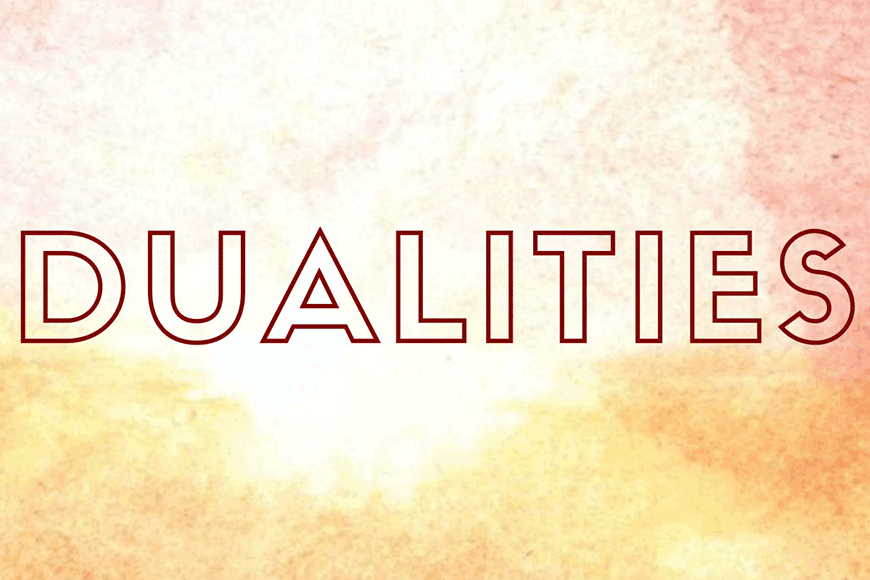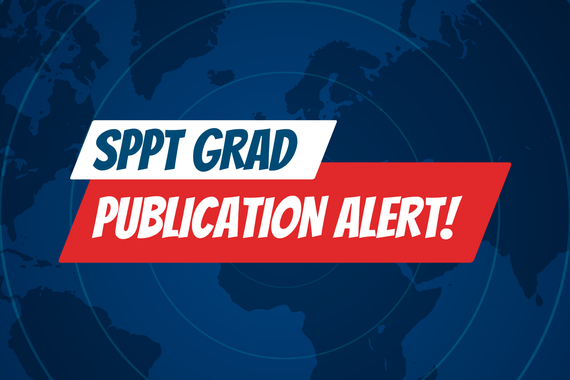Deadline Extended! Dualities: Hybrid States and Liminal Identities
The graduate students from the Department of Spanish and Portuguese Studies of the University of Minnesota-Twin Cities are pleased to host our 7th Annual Graduate Student Conference, titled “Dualities: Hybrid States and Liminal Identities.” The conference will be taking place at the University of Minnesota-Twin Cities on March 20 & 21, 2020.
Our conference provides a multidisciplinary space for a dialogue that reflects the topic of Dualities on research regarding but not limited to inmigration, latinx studies, discourse analysis, literary criticism, ecological perspectives on heritage language education, medieval studies, Global North and Global South, language and identity, human rights, and much more.
We are proud to announce the participation of the following keynote speakers:
Dr. Kim Potowski, University of Illinois - Chicago
Dr. John Beverley, University of Pittsburgh
Call for Papers
Beneath the colonial architecture of Cusco’s towering Cathedral lay vestiges of the Inca empire. Today, these large stones both support and embody what Néstor García Canclini has called the “hybridization” of cultural heritage in which Latin American art reveals uncertainty about the value of so-called modernity in Latin America. This historical monument encapsulates the Peruvian-Quechua heritage epitomized by Marcos Zapata’s paintings, such as the representation of the Last Supper with the twelve apostles eating a guinea pig. Another example of this rich Peruvian culture is revealed in the upholding and evolution of the tusán identity. This ethnic group is a product of the Chinese migration to Latin America in 1849 and is marked by its cultural hybridity. What can we make of these structures and identities? Are they a collection of dichotomous units or are they a condition that do not easily fit into traditional binaries?
As the aforementioned examples demonstrate, in many multilingual and multicultural contexts, common assumptions about monolithic linguistics and identity fall apart. Our interactions with the physical and imagined world stimulate questions such as: How do language ideology and immigration discourses influence the construction of individual and collective identities? How does linguistic duality shape who we are? What does it mean to be a part of and operate within coloniality/decoloniality in the Global South and Global North? How do environmental studies redene our notions of human and non-human? In terms of pedagogical strategies, is there a binary division in the Form-Function method?
This graduate conference’s goal is to reect on similar paradoxes of dualities as they appear across various elds of study. We invite you to submit proposals for individual presentations related to this year’s theme: Dualities. Topics of interest may include but shall not be limited to:
- Multiple interpretations, literary criticism, and discourse analysis.
- Identity (cultural, gender, racial, language), border studies, and Chicano and Latino studies.
- Medieval studies, post-colonialism, and colonialism.
- Organic approaches to SLA, ecological perspectives on heritage language education, identity in dual immersion schools, and language content divide.
- Human rights, geopolitics, anthropology, genocide and mass violence, trauma, and environmental humanities.
- Sociolinguistics (language contact, linguistic assimilation and variation).
- Pragmatics, semantics, and phonetics and phonology.
- Art and aesthetics, music and sound studies, Hispanic and Lusophone theater, film studies, and popular culture.



